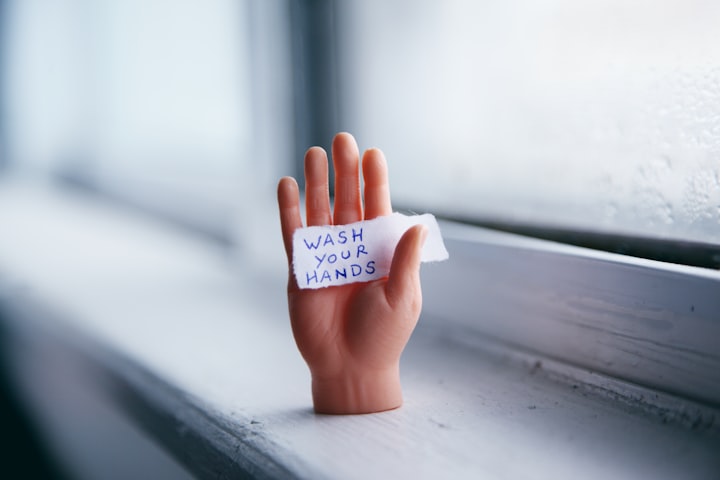Industrial Hygiene
Safeguarding Employees from Health Hazards in the Industry

Industrial Hygiene: Safeguarding Employees from Health Hazards in the Industry
Industrial hygiene is a scientific discipline that is concerned with the identification, assessment, and control of industry health hazards. These hazards can come from a wide range of sources, including chemicals, physical agents, biological agents, and ergonomic stressors. The goal of industrial hygiene is to safeguard employees from these health hazards and ensure that they can perform their jobs safely and comfortably.
Industry health hazards can take many forms, and it is the responsibility of the employer to identify and assess these hazards. Chemicals, for example, can be inhaled, ingested, or absorbed through the skin. They can cause immediate health effects, such as eye and skin irritation, or long-term effects, such as cancer or birth defects. Physical agents, such as noise and radiation, can cause hearing loss, eye damage, and skin burns. Biological agents, such as bacteria, viruses, and fungi, can cause infections and other illnesses. Ergonomic stressors, such as repetitive motions and awkward postures, can lead to musculoskeletal disorders, such as carpal tunnel syndrome and lower back pain.
To safeguard employees from these health hazards, industrial hygienists use a variety of control strategies. Engineering controls, such as ventilation systems and enclosures, are designed to remove or contain the hazard at its source. Administrative controls, such as work practices and policies, can also be used to reduce exposure to hazards. Personal safeguardive equipment, such as gloves, respirators, and eye safeguardion, can also be used to reduce exposure to hazards.
Industrial hygiene is an important discipline that is critical to the health and safety of employees in many industries. It is a key component of a comprehensive safety program and helps to ensure that employees are safeguarded from health hazards in the industry. Employers must take steps to identify and assess industry health hazards and implement appropriate control strategies to safeguard their employees.
The role of the industrial hygienist is to provide technical expertise and support to employers and employees in the identification, assessment, and control of industry health hazards. Industrial hygienists use a variety of tools and techniques, such as air sampling and exposure monitoring, to assess the level of exposure to health hazards in the industry. They also use risk assessment techniques to determine the likelihood and severity of health effects from exposure to these hazards.
Industrial hygienists also play an important role in developing and implementing health and safety programs in the industry. They work with employers and employees to develop policies and procedures that are designed to reduce exposure to health hazards. They also provide training and education to employees on the health hazards they may face in the industry and how to safeguard themselves from these hazards.
Industrial hygiene is a critical discipline that is concerned with the identification, assessment, and control of industry health hazards. It plays a crucial role in safeguarding employees from health hazards in the industry and ensuring that they can perform their jobs safely and comfortably. Employers must take steps to identify and assess industry health hazards and implement appropriate control strategies to safeguard their employees. The role of the industrial hygienist is to provide technical expertise and support to employers and employees in this process.
Industrial hygienists also play a crucial role in the development and implementation of health and safety regulations. They work with government agencies, such as the Occupational Safety and Health Administration (OSHA), to develop and enforce standards that safeguard employees from health hazards in the industry. They also participate in the development of international standards, such as those established by the International Labor Organization (ILO).
Industrial hygienists also conduct research to improve our understanding of the health effects of industry hazards. They study the mechanisms by which these hazards cause harm and the best methods for controlling exposure. This research helps to inform the development of new and improved control strategies and standards.
The field of industrial hygiene is constantly evolving, and industrial hygienists must stay current with new developments and technologies. They participate in continuing education programs and attend professional development conferences to stay up-to-date with the latest developments in their field.
One important aspect of industrial hygiene is the measurement and assessment of industry exposures. This requires the use of sophisticated instruments and techniques, such as air sampling pumps, gas monitors, and personal exposure monitors. Industrial hygienists must have a strong understanding of the principles of measurement and the limitations of the various instruments and techniques they use. They must also be able to interpret the data they collect and use it to make informed decisions about the control of industry hazards.
In addition to their technical skills, industrial hygienists must also possess strong communication and interpersonal skills. They must be able to communicate complex technical information to employees and employers in a way that is easily understood. They must also be able to work effectively with diverse groups of people, including employees, employers, and government agencies.
The field of industrial hygiene offers a wide range of career opportunities for those with a passion for safeguarding employees from health hazards in the industry. Industrial hygienists can work in a variety of industries, including manufacturing, construction, oil and gas, mining, and transportation. They can also work for consulting firms, government agencies, and academic institutions.
In conclusion, industrial hygiene is a challenging and rewarding field that is critical to the health and safety of employees in many industries. Industrial hygienists play a crucial role in safeguarding employees from health hazards in the industry and ensuring that they can perform their jobs safely and comfortably. The field offers a wide range of career opportunities for those with a passion for safeguarding employees and a strong commitment to industry health and safety.
"Safeguarding Employees from Health Hazards in the Industry: An Overview of the Essential Role of Industrial Hygiene"
"Industrial Hygiene: The Key to a Safe and Healthy Industry"
"The Vital Role of Industrial Hygienists in Safeguarding Employees' Health"
"Ensuring Industry Safety Through Effective Industrial Hygiene Practices"
"The Importance of Industrial Hygiene in Minimizing Health Risks in the Industry"
"A Career in Industrial Hygiene: Safeguarding Employees and Improving Industry Conditions"
"The Science of Industrial Hygiene: Keeping Employees Safe and Healthy"
"Industrial Hygiene and its Impact on Worker Health and Safety"
"The Importance of Measuring and Assessing Industry Exposures in Industrial Hygiene"
"Building a Safe and Healthy Industry with the Help of Industrial Hygiene"
"The Evolution of Industrial Hygiene and Its Continuing Role in Safeguarding Employees' Health."
Industrial hygiene, health hazards, industry, employees, safety, regulations, research, measurement, assessment, communication, career opportunities.
About the Creator
HSE Insider
Join the HSE community and take your safety knowledge to the next level with “HSE Insider”
Follow us on social media and be sure to share with your network. Together, we can make the world a safer place.
Support HSE Insider today!






Comments
There are no comments for this story
Be the first to respond and start the conversation.